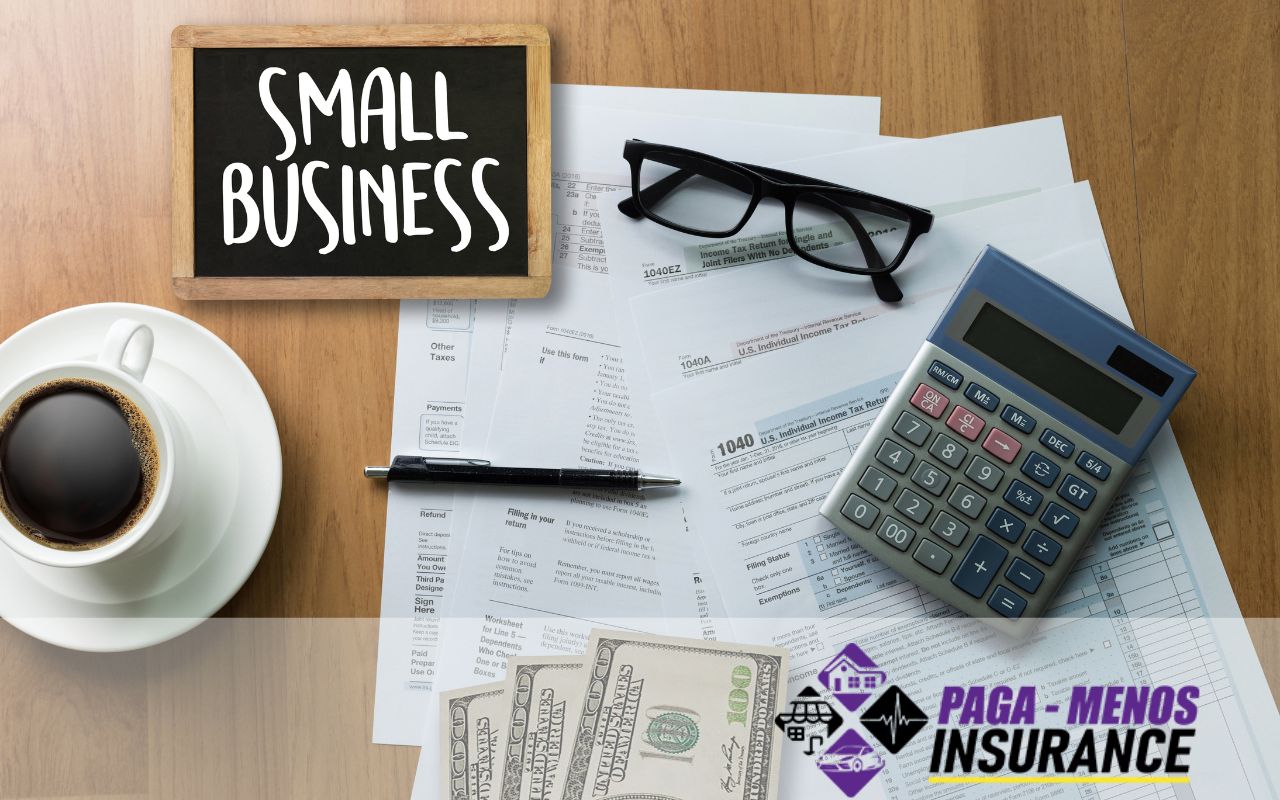
Why Insure Your Small Business? Protecting Your Investment
Starting a small business requires significant investments of time, effort, and money. As an entrepreneur, you pour your heart and soul into building your business from the ground up. However, amidst the excitement and challenges of running a small business, one crucial aspect that often gets overlooked is insurance. In this article, we will explore why insure your small business is essential for protecting your investment and ensuring its long-term success. Let’s dive in and understand the importance of securing your business with the right insurance coverage.
Why Insure Your Small Business
Safeguarding Against Unforeseen Events
Running a small business involves inherent risks, and while you may strive to mitigate them, certain events are beyond your control. Natural disasters, accidents, theft, or even lawsuits can pose significant threats to your business’s survival. Insurance acts as a safety net, providing financial protection when these unexpected events occur. By insuring your small business, you safeguard yourself against potential losses that could otherwise cripple your operation.
Protecting Your Assets – Why Insure Your Small Business
As a small business owner, your assets form the backbone of your operations. These assets hold immense value, whether it’s your office space, equipment, inventory, or intellectual property. Insurance allows you to protect these assets from damage, theft, or loss. In the event of an unfortunate incident, your insurance coverage will help you recover and continue your business without facing significant financial setbacks.
Meeting Legal Requirements – Safeguarding Your Small Business
Depending on your business type and location, certain insurance coverages may be legally mandated. For example, if you have employees, workers’ compensation insurance is often required. Additionally, if your business operates in a specific industry, such as healthcare or transportation, there may be additional regulatory requirements for insurance coverage. By insuring your small business, you not only comply with legal obligations but also demonstrate professionalism and accountability.
Securing Your Business’s Reputation
In today’s interconnected world, news spreads rapidly. One negative incident, such as a customer injury or property damage, can tarnish your business’s reputation and erode customer trust. However, with the right insurance coverage, you can manage these situations more effectively. Insurance helps cover legal expenses, settlements, and damages, reducing the financial strain on your business. This allows you to focus on resolving the issue and rebuilding your reputation without bearing the entire burden alone.
The Benefits of Small Business Insurance – Why Insure Your Small Business

Peace of Mind – The Importance of Insuring Your Small Business
Running a small business can be stressful, but having comprehensive insurance coverage offers peace of mind. Knowing that you have protection against unforeseen events and potential losses allows you to concentrate on growing your business without constantly worrying about what could go wrong. With the right insurance, you can focus your energy on strategic decision-making and achieving your business goals.
Business Continuity – Why Insure Your Small Business
A significant setback, such as a fire or a lawsuit, can bring your business to a halt. Without the necessary financial support, recovering from such incidents can be incredibly challenging. However, insurance acts as a lifeline, providing the financial resources needed to get your business back on track. Whether it’s covering repair costs, replacing damaged equipment, or compensating for lost revenue during downtime, insurance ensures business continuity during difficult times.
Why Small Business Insurance is Crucial: Attracting and Retaining Talent
Employees are the backbone of any successful business. By offering comprehensive insurance benefits, you create a more attractive work environment for potential hires and increase employee loyalty and retention. Quality insurance coverage shows your commitment to the well-being of your staff and their families. This not only helps attract top talent but also fosters a positive company culture centered around employee satisfaction and security.
Mitigating Financial Losses – Securing Your Small Business
In the event of a liability claim or lawsuit, the financial implications can be devastating for a small business. Legal expenses, settlements, or judgments can quickly add up, potentially bankrupting your business. However, with the appropriate liability insurance, you transfer these risks to the insurer, ensuring that your financial losses are mitigated. By choosing the right coverage for your business, you can protect yourself from significant financial setbacks that could jeopardize your hard-earned success.
FAQs About Why Insure Your Small Business

FAQ 1: What types of insurance are essential for small businesses?
Insurance needs can vary depending on your business’s nature and size. However, some common types of insurance recommended for small businesses include:
- General Liability Insurance: Provides coverage for third-party bodily injury, property damage, and advertising injury claims.
- Property Insurance: Protects your business property, including buildings, equipment, inventory, and assets, against damage or loss.
- Workers’ Compensation Insurance: Compensates employees for work-related injuries or illnesses and covers associated medical expenses.
- Professional Liability Insurance: Also known as Errors and Omissions (E&O) insurance, it protects professionals from claims arising due to errors, negligence, or malpractice in their services.
- Business Interruption Insurance: Helps cover lost income and expenses when your business operations are disrupted due to covered events, such as natural disasters.
FAQ 2: Can I rely on personal insurance coverage for my small business?
While personal insurance policies may provide some coverage for small businesses, they often have limitations and exclusions regarding commercial activities. To ensure adequate protection, it is essential to have dedicated insurance coverage for your small business. Personal policies typically do not cover business property, liability arising from business activities, or professional errors specific to your business.
FAQ 3: How can I determine the right insurance coverage for my small business?
Choosing the right insurance coverage for your small business can be overwhelming. Consider consulting with an experienced insurance agent or broker specializing in commercial insurance. They can assess your business’s unique risks and recommend appropriate coverage options tailored to your needs. Additionally, thoroughly review policy terms, limits, deductibles, and exclusions to ensure comprehensive protection.
FAQ 4: Does the cost of insurance outweigh the benefits for small businesses?
While insurance premiums may add to your business expenses, the potential cost of not having insurance far outweighs the investment. A single lawsuit, accident, or natural disaster could result in substantial financial losses that could cripple your business. Insurance provides the necessary financial support to mitigate these risks and protect your investment. Think of insurance as an essential investment in the long-term success and stability of your small business.
FAQ 5: Can I make changes to my insurance coverage as my business grows?
Absolutely! As your small business evolves and expands, your insurance needs may change. Regularly review your insurance coverage with your agent or broker to ensure it aligns with your business’s current size, operations, and risk profile. Adjustments can be made to policy limits, deductibles, and additional coverage options to accommodate your business’s growth and evolving needs.
FAQ 6: How can I save on insurance costs for my small business?
While insurance is a necessary expense, there are ways to manage costs without compromising coverage:
- Shop Around: Obtain quotes from multiple insurance providers to compare coverage options and premiums.
- Bundle Policies: Consider bundling multiple coverage types with the same insurer to potentially qualify for discounts.
- Risk Management: Implement safety protocols and risk management practices to minimize potential risks, which may lead to lower premiums.
- Increase Deductibles: Opting for higher deductibles can lower your premium; however, ensure you can comfortably afford the deductible amount if a claim arises.
- Review Annually: Regularly review your insurance policies to ensure they still meet your business’s needs and compare pricing with other insurers.
Insure Your Small Business for a Secure and Successful Future
Insuring your small business is not just a prudent decision; it’s a crucial step towards safeguarding your investment and ensuring its long-term success. By protecting against unforeseen events, securing your assets, meeting legal requirements, and preserving your business’s reputation, insurance provides the financial safety net your business needs. Remember, it’s not a matter of “if” but “when” a disaster or liability claim will strike. Take proactive steps today to mitigate risks and position your small business for a resilient and thriving future.
